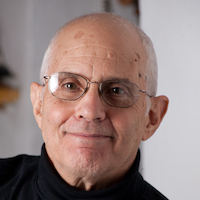Is It Time for Enforceable Standards in the Yoga Community?
One of the things John Friend told me he admired about my book, American Veda, was its perspective on the guru sex scandals of the seventies. Ironically, his name is now being linked to those decades-old upheavals. There are obvious reasons for the comparisons, but they’re not exactly parallel, and the similarities and differences are worth looking at if we are to learn anything useful about the recent events.
The Anusara turmoil is similar to its earlier counterparts in that both involved clandestine sexual liaisons between a man in a position of power and authority and women of subordinate status. They also have in common a spiritual context. While Anusara can be seen as a leading brand in a major industry, the industry is not exactly software or automobiles. Nor are yoga teaching institutions the same as universities or, for that matter, medical clinics or spas. Despite the accelerating tendency to reduce yoga to a health and fitness discipline, it is also a spiritual tradition, and John Friend is one of the teachers who never lost sight of that. For those reasons, Anusara is not just any old business, and John Friend is not just another CEO.
That said, it must be emphasized that Anusara is very different from a traditional spiritual lineage, and John Friend is not a guru.
He was, no doubt, the undisputed leader sitting alone atop the Anusara edifice, but for all his superstar stature, he is seen primarily as a teacher and an entrepreneur, not a holy man.
No doubt, there were many who projected onto him qualities of wisdom and nobility that far exceeded reality, but that happens around celebrities and authority figures in every walk of life. John’s students and employees were not expected to surrender to his will the way chelas surrender to their masters. It was not assumed that John was incapable of mistakes or that disagreeing with him meant you were weak-minded or spiritually retarded.
In addition, John is not a sannyasi who has taken a vow of celibacy and is presumed to have kept it. He did not run an ashram where devotees were required or encouraged to be celibate. These are crucial distinctions, because one reason traditional gurus are revered is their presumed renunciation. They are seen as exceptional partly because they appear to be “above” not only sex, but also money, status and other transient satisfactions that drive the rest of us.
I am not aware of John Friend having made any such claims, or of anyone having made them on his behalf. The gurus whose dalliances shocked and wounded their devotees the most had violated sacred vows and had, hypocritically, demanded restraint from their followers. Presumably, the only explicit vows that were violated in the Anusara world were marital. That’s serious enough, but it’s not the double whammy of the guru sexcapades.
So, Anusara is not an ordinary business organization, but it is also not a traditional guru-centered sampradaya; and John Friend is not an ordinary teacher or boss, but he’s not a swami or a guru either. This points to the ambiguous position of modern yoga in general. Yoga occupies a space on a Venn Diagram of American institutions where business, education, healthcare and spirituality all overlap. In all such institutions, however, sexual relations between employers/teachers/providers and their employees/students/clients are either frowned upon or explicitly prohibited. In some cases, it’s left to individual institutions to set the exact rules and enforce them, while others are overseen by some kind of governing body. Perhaps the Anusara revelations will be a catalyst for the yoga community to develop a universal code of ethics, like the ones that govern physicians, psychotherapists and other professionals.
Of course, the only organization that even comes close to having the oversight structure of the American Medical Association (AMA) or the American Psychological Association (APA) is Yoga Alliance. YA does have a code of conduct that registered teachers agree to uphold. It includes the following standards (there are others):
-
Respect the rights, dignity and privacy of all students.
-
Avoid words and actions that constitute sexual harassment.
-
Adhere to the traditional yoga principles as written in the Yamas and Niyamas.
-
Follow all local government and national laws that pertain to my yoga teaching and business.
But YA is toothless. When a psychologist violates the APA’s ethical code, or a doctor falls short of the AMA’s standards, there are serious consequences. YA has no enforcement mechanism. Even if it wanted to respond institutionally to the Anusara events it would be a paper tiger. That would be true even if John Friend was registered with YA, and he isn’t. I know from speaking with YA officials that exploring ways to bolster teaching standards is a priority.
Recent events might also prompt a discussion of how to investigate ethical complaints fairly and hold transgressors accountable in some meaningful way. As American yoga matures and finds its place alongside other reputable healing and spiritual professions, the community might be wise to create its own credible enforcement mechanisms, before lawsuits or criminal charges force heavy-handed governments to step in. Taking action sooner rather than later would be consistent with Patanjali’s advice in the Yoga Sutras: heyam dukham anagatam—avert the danger that has not yet come.
~
Editor: Kate Bartolotta










Read 7 comments and reply